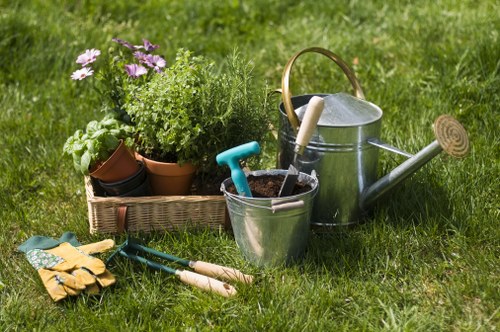Effective Oven Cleaning with the Right Oven Cleaner
Introduction to Oven Cleaning

Keeping your oven clean is essential not only for maintaining its appearance but also for ensuring it operates efficiently. **Oven cleaner in oven cleaning** plays a crucial role in achieving a spotless and hygienic cooking environment.
Over time, ovens accumulate grease, food spills, and burnt residues that can affect their performance. Regular cleaning helps in prolonging the life of your appliance and prevents unpleasant odors from lingering in your kitchen.
Choosing the right oven cleaner is vital. Not all cleaners are created equal, and selecting an effective product can make the cleaning process easier and more efficient.
Types of Oven Cleaners

There are various types of oven cleaners available in the market, each designed to tackle different kinds of stains and residues. Understanding these types can help you choose the best one for your needs.
Chemical Oven Cleaners: These are the most common and are highly effective in breaking down tough grease and grime. They usually come in spray or gel form and require careful handling due to their potent ingredients.
Natural Oven Cleaners: For those who prefer eco-friendly options, natural cleaners made from ingredients like vinegar, baking soda, and lemon are excellent choices. While they may require more effort, they are safer for the environment and your health.
How to Use Oven Cleaner Safely

Safety should always be a priority when using oven cleaners. Here are some guidelines to ensure a safe and effective cleaning process:
- Read the Instructions: Always follow the manufacturer's instructions carefully to avoid accidents and ensure the best results.
- Wear Protective Gear:
- Gloves to protect your skin from harsh chemicals.
- Eye protection to prevent splashes.
- Ensure Proper Ventilation:
- Open windows and doors to allow fresh air to circulate.
- Use fans to help disperse fumes.
By adhering to these safety measures, you can effectively clean your oven without compromising your health or safety.
The Step-by-Step Oven Cleaning Process

Cleaning your oven can be a straightforward task if approached systematically. Follow these steps to achieve a thoroughly clean oven:
- Preparation: Remove all racks and accessories from the oven. This allows you to clean every nook and cranny effectively.
- Apply the Oven Cleaner: Spray or spread the cleaner evenly across the interior surfaces, avoiding heating elements.
- Let It Sit: Allow the cleaner to work for the recommended time, usually 15-30 minutes, to break down tough stains.
- Scrub the Interior: Use a non-abrasive scrubber to remove loosened grime and residues.
- Wipe Clean: Use a damp cloth to wipe away the cleaner and any remaining debris thoroughly.
- Replace Accessories: Once the oven is dry, place the racks and accessories back inside.
Following these steps ensures a clean and well-maintained oven, ready for use.
Benefits of Regular Oven Cleaning

Maintaining a clean oven offers several advantages that go beyond aesthetics:
- Improved Efficiency: A clean oven heats more evenly and operates more efficiently, saving energy and reducing utility bills.
- Enhanced Safety:
- Prevents the risk of fires caused by accumulated grease and food spills.
- Reduces the likelihood of smoke and unpleasant odors.
- Better Cooking Results:
- Eliminates the risk of burnt or smoky flavors transferring to your food.
- Ensures healthier cooking conditions by minimizing the presence of harmful residues.
Regular cleaning not only keeps your oven looking new but also contributes to a safer and more efficient kitchen environment.
Choosing the Right Oven Cleaner for Your Needs
Selecting the appropriate oven cleaner depends on various factors, including the type of oven, the level of grime buildup, and personal preferences regarding ingredients.
Considerations:
- Type of Oven: Self-cleaning ovens may require different cleaners compared to conventional models.
- Stain Severity: Heavily soiled ovens may benefit more from strong chemical cleaners, while lighter stains can be managed with natural alternatives.
- Safety and Environmental Impact: Opt for eco-friendly or non-toxic cleaners if you are concerned about environmental impact and personal safety.
By evaluating these factors, you can make an informed decision and choose an oven cleaner that best suits your cleaning requirements.
Common Mistakes to Avoid in Oven Cleaning
Avoiding common pitfalls can enhance the effectiveness of your oven cleaning routine:
- Using Abrasive Tools: Scrubbing with harsh materials can damage the oven’s surfaces. Opt for soft cloths or non-abrasive scrubbers instead.
- Neglecting Ventilation: Failing to ventilate the area can result in inhaling harmful fumes from chemical cleaners.
- Overusing Cleaners: Applying too much cleaner can leave residues that may interfere with future cooking and potentially harm your health.
Being mindful of these mistakes ensures a safer and more effective cleaning process.
Natural Alternatives to Chemical Oven Cleaners
If you prefer avoiding harsh chemicals, several natural alternatives can effectively clean your oven:
- Baking Soda and Vinegar: Create a paste with baking soda and water, apply it to the oven surfaces, and spray vinegar to enhance the cleaning power.
- Lemon Juice: The acidity in lemon juice helps break down grease and leaves a pleasant scent.
- Salt: Coarse salt can act as a mild abrasive to scrub off stubborn residues without damaging surfaces.
These natural solutions are safer for both you and the environment while still providing efficient cleaning results.
Maintaining Your Oven Post-Cleaning
Once your oven is clean, maintaining its cleanliness can extend the intervals between deep cleanings:
- Wipe Spills Immediately: Clean up any spills or splatters right after cooking to prevent them from hardening.
- Use Oven Liners: Place liners at the bottom of your oven to catch drips and crumbs, making cleanup easier.
- Regular Inspection: Periodically check the oven’s interior for signs of buildup and address them promptly.
Adopting these habits can keep your oven in optimal condition and reduce the effort needed for thorough cleanings.
Choosing Between Self-Cleaning and Manual Oven Cleaning
Modern ovens often come with self-cleaning features, but deciding whether to rely on this function or opt for manual cleaning depends on your preferences and oven condition.
- Self-Cleaning Ovens: These ovens use high temperatures to burn off residues, turning them into ash that can be easily wiped away. It's a convenient option but can emit strong odors and requires the oven door to remain closed during the process.
- Manual Cleaning: Offers more control over the cleaning process and allows the use of specific cleaners tailored to your oven’s needs. It can be less energy-intensive and avoids the high temperatures used in self-cleaning cycles.
Both methods are effective, and the choice largely depends on your comfort level and the specific requirements of your oven.
Professional Oven Cleaning Services
If DIY cleaning seems daunting or if your oven is exceptionally dirty, professional oven cleaning services can be a worthwhile investment.
- Expertise and Equipment: Professionals have the skills and tools necessary to clean ovens thoroughly without causing damage.
- Time-Saving:
- Hiring a service can save you time and effort, especially for large or heavily soiled ovens.
- Guaranteed Results:
- Many services offer guarantees, ensuring that the job is done to your satisfaction.
Consider reaching out to a trusted cleaning service to handle your oven cleaning needs efficiently and effectively.
Eco-Friendly Oven Cleaning Tips
Maintaining an eco-friendly approach to oven cleaning not only benefits the environment but also promotes a healthier home:
- Use Sustainable Cleaners: Opt for biodegradable and non-toxic cleaning agents to minimize environmental impact.
- Reduce Waste:
- Reuse containers and choose concentrated cleaners to cut down on packaging waste.
- Energy Efficiency:
- Clean ovens operate more efficiently, reducing energy consumption and your carbon footprint.
Integrating these practices into your cleaning routine supports sustainability while maintaining a clean kitchen.
Troubleshooting Common Oven Cleaning Issues
Even with the best cleaning practices, you might encounter some challenges. Here are solutions to common oven cleaning issues:
- Stubborn Stains: Apply a more concentrated paste of baking soda and water, let it sit overnight, and scrub gently.
- Lingering Odors: Place a bowl of vinegar or lemon slices in the oven overnight to absorb unpleasant smells.
- Difficult-to-Remove Residues:
- Use a mixture of baking soda and hydrogen peroxide for extra cleaning power.
Addressing these issues promptly ensures your oven remains clean and functional.
Cost-Effective Oven Cleaning Solutions
Cleaning your oven doesn’t have to break the bank. Here are some budget-friendly tips:
- DIY Cleaners: Utilize common household items like baking soda, vinegar, and lemon for effective cleaning without the cost of specialized products.
- Reuse and Recycle:
- Repurpose containers and materials you already have to reduce expenses.
- Preventive Maintenance:
- Regularly wiping down your oven can prevent excessive buildup, minimizing the need for expensive deep cleanings.
Implementing these strategies can help you maintain a clean oven while staying within your budget.
Innovations in Oven Cleaning Technology
The realm of oven cleaning has evolved with technological advancements, offering more efficient and user-friendly solutions:
- Steam Cleaning: Utilizes steam to loosen grime and sanitize the oven without harsh chemicals.
- **Self-Maintenance Features:** Modern ovens come equipped with features that reduce the frequency and intensity of cleaning sessions.
- Smart Cleaners: Integration with smart home systems allows for automated cleaning cycles and notifications.
Staying informed about these innovations can help you choose an oven with the latest cleaning technologies, simplifying your maintenance routine.
Conclusion
**Oven cleaner in oven cleaning** is an essential component for maintaining a clean, efficient, and safe kitchen environment. By understanding the types of cleaners, following safety guidelines, and adopting effective cleaning practices, you can ensure your oven remains in optimal condition.
Whether you opt for chemical or natural cleaners, regular maintenance, and avoiding common mistakes will prolong your oven’s lifespan and enhance its performance. For those seeking convenience and guaranteed results, professional oven cleaning services are a valuable option.
Don’t wait until your oven is covered in grime! Contact us today to schedule your professional oven cleaning service and enjoy a sparkling clean kitchen.

